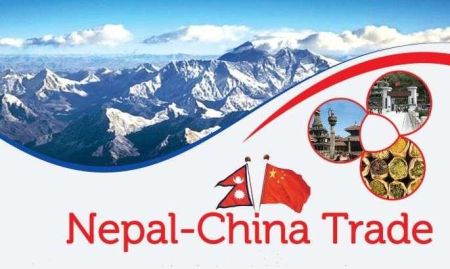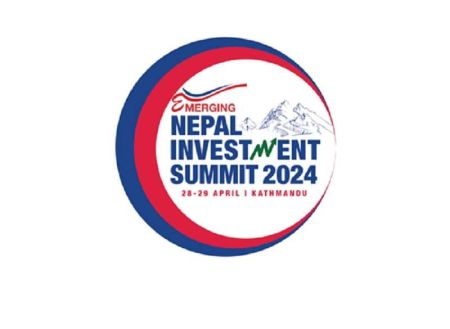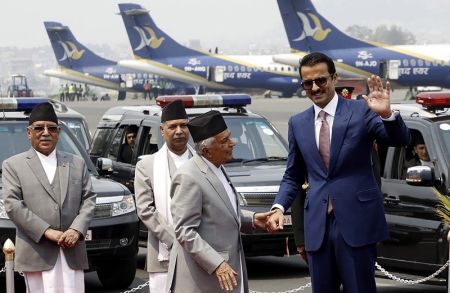In order to understand why CEOs fail, we shall have to deeply probe the status of business environments of today, the challenges that face them tomorrow and the evolution of CEO capabilities to match future needs.
--BY JAGADISH PRASAD AGRAWAL
Yes, many of the CEOs fail. It is a strong assertion, startling and dismally disappointing. But it is a fact. The failure rate of enterprises world over is much higher than success. All the failure cannot be attributed directly to the shortcomings of CEO (chief executive officer), but even the indirect causes of failure are supposed to be arrested by them. It is reported that “In 2015, turnover among global CEOs reached a record rate of nearly 17 percent and more than one fifth of CEOs who left their posts over the past year, were dismissed.”
These dismissals were that they could not meet the expectation of their stakeholders. In today’s uncertain world where the businesses are in a very vulnerable mode, the CEOs are challenged to show their mettle speedily and in short term. Hence they are under pressure to take to short cuts and in their speed likely to fall more. It is necessary to examine whether these failures are because of disconnect between the capabilities of CEOs who are aged and the new genre of circumstances the enterprises face are new born. In order to understand why CEOs fail, we shall have to deeply probe the status of business environments of today, the challenges that face them tomorrow and the evolution of CEO capabilities to match future needs.
Political upheavals, anti-globalization and anti-immigration concepts are changing the business ambience and the terms of trade topsy-turvy everywhere. Recent political turmoil and consequent trade embargo in Nepal have had such an adverse impact that the astutest of CEO cannot reverse for many years. Export-based industries are totally in doldrums because Nepal’s exports were mainly to India and also because of slowdown in world market. Globalization and the open economy has boosted growth in developing countries including Nepal but the distribution of wealth is skewed so much that the majority of the people are deprived of the benefit of growth, which has bred corruption, evasion and dissatisfaction.
These emerging distortions in society and impact thereof on the business are beyond any CEOs scope of responsibility. The source of funding in Nepal for development projects has always been foreign assistance, tourism and remittance by our citizens working abroad. Though we have always been complaining about immigration of Indian labour into Nepali labour market, we have always benefitted from other countries liberally welcoming our labour force.
Presently, it is estimated that approximately ten million Nepali people work abroad and remit approximately 150 bn Nrs every year to our state coffers. Tourists and foreign assistance are also external to us and if denied, Nepal is subject to failure as a nation. Protectionism is raising its head, immigration of people is resented to by local people, and a class of politicians, not only in developing world but in the developed world as well, is emerging who advocate conservatism and hold ultra right views of isolation and protection. These developments too certainly affect us. Competition is at stake and monopolistic syndication and cartelling takes over. Productivity suffers and CEOs are disabled to work rationally and on merit. Failure of an enterprise becomes inevitable sooner or later. In these circumstances, when the chances of failure are external, what can a CEO do to succeed?
However, one positive aspect of today’s business environment is that it is becoming increasingly technology driven. Though automation has shrunk employment opportunities in the organizations and the information technology has made administration and management easier and more efficient, it has created new spaces for specialized services. The service sector is emerging as one of the core requirement for the efficient management of manufacturing hubs.
The young people with IT knowledge are on the demand list. With start-up capital readily available, they are embarking upon their own ventures. These young people work in teams and are open to new ideas and innovation and prefer a democratic working environment for their skills to blossom. CEOs have an ideal ambience for their success here. These developments are silver lining in an otherwise bleak scenario. However, with the migration of manual labour abroad, trade unions are becoming more strident. A worker in Nepal is from informal sector of agriculture and needs job only partially. Therefore, they seek political patronage so as to secure a lifetime employment with the industry. The workers protected by the trade unions do not make themselves skilful and efficient.
In order not to fail and to address these emerging new set of conditions, a new breed of CEOs is required who can respond adequately to changing agenda. History of CEOs independently manning the commercial enterprises in Nepal is a very recent one. In fact, the history of professional management of commercial enterprises in Nepal starts from 1990 when the finance/ insurance / aviation sectors were decontrolled and avenues therein opened up for professional management working independently under board guidelines. Ownership and management were really segregated. The CEOs were delegated the responsibility of not only consolidating the fledgling new set ups but also to lay foundation for a systematic long term approach to the development of these sectors for the future.
The import of experienced expatriates to man these institutes initially and a deliberate programme to train local personnel for leadership roles under their mentorship was a very productive strategic thinking on the part of promoters of these sectors in those days. These sectors could develop a breed of CEOs compatible to the needs. These sectors were new, the promoters were varied and foremost, these sectors were very technology-driven and internationally linked. Hence, there was no choice but to operate under experienced guidance of CEOs of proven track record. This may have been the primary reason that these sectors were founded mostly under joint ventures from abroad.
Similarly, tourism sector has also built its own leadership by on-the-job training under experienced CEOs from their joint-venture partners. Now, whether it is hospitality or trekking or mountaineering business, our CEOs can compete with anybody else in the region in their managerial capabilities. This could happen because tourism was also externally-linked and therefore, demanded the highest level of managerial competence from the very outset. These compulsions of the sector itself prompted the promoters to take a professional view of the management and a structured training and upward movement of the trained personnel in the hierarchy paved the way for the right type of CEOs to be ready now.
All the above sectors fall under service category, a new area of investment for Nepal. The gradual evolution of these sectors definitely belongs to its own vibrancy, but the CEO’s contribution to the growth of them needs equal acknowledgement. However, this is not to say that the CEOs will not fail here. But the chances are less than in any other sector. Uncertainty in these sectors looms large as these sectors are externally linked and its customer base is more sophisticated so as to be readily vulnerable to instability of any nature. Furthermore, the stakeholders of these sectors are not only its customers and shareholders but a host of other emerging new issues such as safety, climate change, capital movement, immigration and populist agitations all of which affect success or failure of these businesses.
Environment and social issues are becoming integral part of any success strategy. Our CEOs in these sectors must take keen interest in these new stakeholders and engage themselves to them to remain updated. These are future pressing needs of the sectors and his attitude and style to these future needs will depend upon how the individual person has evolved into a CEO. How he becomes a CEO is of capital importance. One who has become a CEO by scaling up the ladder slowly but steadily engaging himself in all aspects of the business and gaining operational experiences, is more successful. They take long-term systematic approach to solving the issues. The gap between him and the floor will be narrowed only if one has risen to be the CEO from the bottom.
In contrast, the manufacturing, the infrastructure and the health care sectors in Nepal dismally lack experienced professional CEOs who can take forward Nepali enterprises in these sectors into 21st century by creating comparative advantages. The problem in these sectors is so enormous that they demand extra capabilities in their CEO to steer them clear from the morass they are in. The reason these sectors lag behind in the quality of leadership is because these sectors did not have to face pressure externally as well as internally from any of their stakeholders to improve their competitiveness.
The liberal economy opened the doors for the supply of goods and services from anywhere in the world into our market. Our economy veered more on importing than indigenous production. Creating health and infrastructural facilities have more or less been in the public sectors in which achieving efficiencies have never been the priority goal. As it has happened, most of the public institutions are headed by political appointees who may not have the requisite experience and expertise to do justice to their managerial mission. It is a shameful secret that despite enormous investment in the public sector in health care and the infrastructural development, the performance index as measured by the common man’s reach and the quality thereof is one of the worst in the world. Capital cost, time-cost and the quality cost in any of these sectors is very high in Nepal and any improvement in them will depend on integrity and activity of CEOs.
What is strange is that the manufacturing enterprises which largely belong to the private sector and have a long history of investment in Nepal are largely starved of professional CEOs. Problem lies in the mindset. Most of these enterprises being family-owned and small in operation, the concept of an independent management segregated from the ownership has remained elusive. Neither have the managers ever dreamt themselves in that position nor they were ever groomed to take the onerous independent responsibility of success or failure of the enterprises. Though the scenario is changing but the speed is slow as there is no compulsion for such a change. The induction of private sector in health care services as well as infrastructural development portends well as these sectors are transforming into commercial ventures, and the success of them will hinge upon the quality of CEO who will head them.
Nepal cannot be said to be immune to populist negative image of the business as elsewhere. The enterprises here as elsewhere are becoming publicly owned. Public sector is making way for private sector in most of the capital investment areas. Political volatility and geopolitical issues are equally challenging. The liberal economy though much maligned now, is going to stay to put pressure on our cost efficiencies. In this broad scenario of changes, the role of CEOs becomes very important as they are supposed to lead not only their enterprises through uncertainties of future, but also the very changes to suit Nepali context. Grooming right CEOs should become national priority.
A lot has been written about the role, qualities and style of CEOs to be successful. These characteristics evolve as the circumstances change. But certain of them are basic irrespective of the emerging changes. Foremost, a CEO has to be a leader, who can make things happen. This quality of motivating people to make things happen lies in the inborn personality of the person and can be sharpened but rarely acquired.
Selecting right people for grooming into CEOs of the future should start from the management schools itself. It has been observed worldwide that most of the CEOs are elevated to these designations from inside. A recent survey by HBR shows that 84% of CEOs of the world renowned companies were insiders. The rationale behind an insider becoming CEO is his operational and cultural experience inside the organization. The insider gives continuity and passion and brings about incremental changes as the opportunity arises. An insider may not be so aggressive but his complacent style makes him more acceptable and can generate a team spirit.
A CEO to be successful has not only to be rational but emotional also so as to glue and engage others into a team. However, the pitfall is that the longer he has stayed in the organization, the less risk- taking he becomes. He becomes cautious. He fears abuses and failures which makes him conservative and controlling. While an insider CEO can become overcautious, an outsider may tend to be overaggressive. Both focus on a few selected issues and fail to take a holistic approach. Despite these limitations, overall criterion for CEO grooming in Nepal should be inside evolution unless there are compelling reasons of total managerial collapse for bringing in an outsider. It is an absolute truth that one can learn only by doing and not by holding a position.
CEO is an overrated position as it is only the team work which gives result. For today’s CEOs not to fail and to achieve their goals, it is absolutely essential that he should build a team of right people of right attitudes. For which, he has to have a democratic style of functioning. He builds systems, he grooms people, he builds trust, he takes risks, he makes things happen, he delivers and achieves desired results. But if he is poor in effective communication, how can he do all the above, how can he build team? How can he interact to diagnose? Ability to diagnose, i.e. analytical skill gives a cutting edge to any successful CEO.
Enriching oneself, updating, putting more and more assets into oneself keeps a CEO’s skills fresh and sharpened. In today’s democratic milieu of working in a team, he cannot afford to impose his decision but he should be able to separate and select the best option churned out of interaction. Such consensus decision will be more acceptable.
Apathy to environmental and social issues is normal in the developing countries like Nepal. Pollution control, climate change, child abuses, gender biases, hygiene and safety at work stations are issues that have not found central place in business strategies. Though these issues have started to be legislated upon, but in implementation, they are actively disobeyed. If our economy remains open, and we follow the principle of inter-dependence, these issues can no longer be ignored.
We have to respect them and CEO of the new generation will have to give them high importance to impart depth to their business road-maps. Sooner the better. A CEO cannot afford now to be just an administrative head. He has to be an entrepreneur and social worker combined into one. It is unfortunate that new generation of CEOs have been interacting less with peers and society in general. They are spending less time together outside work, in community, in social work and in participating in the occasions where persons of divergent nature come together and socialize. It is absolutely necessary for any effective CEO to broaden his vision and know the alternative solutions to common problems. Socializing is learning, and participation in group activities means educating oneself.
The future management will mainly focus on decisions being taken on the basis of information and data. Digital availability of data has made the decision-making process much simpler. Preceding decisions are also available for guidance though these may stifle creativity and innovation. To any problem, there can be many alternative solutions and creativity lies in finding the optimum innovative option which the digital availability of data and information facilitate.
It is crucial that the management system of any organization is remoulded into a modern outfit which can foresee, predict and prepare for tomorrow. In this respect, a modern CEO has to have “a Confucian rationality, Islamic science, Buddhist humanism, Hindu logic, Christian charity, Western materialism and Eastern spiritualism all-in-one”.
Robert Townsend wrote that the top of the pyramid tends to be busy playing safe which is the surest way to fail. He said when you become a CEO, give up all those perks and distractions and take your top team out on the road for five years looking for ideas, problems and opportunities and teaching the organization to take chances (risks) again”. Instead of waiting for opportunities and problems to come to your desk, walk out to get the feedback, assist others in doing their job knowing problems, exploring new ideas and seeking opportunities.
Bureaucracy stifles people and strangles productivity. This was true yesterday, today and tomorrow. The steady flow of transformative threat and technology shifts demand agility, so that a CEO can predict future direction and be ready to address them at the right time.
In order to avoid the likely failures, the CEO has always to keep updating himself holistically and prepare his organization to be ready to face disruption at any time. Politics has already started nurturing a new crop of politicians who demonstrate a totally different radical approach to people’s problem. The commercial world cannot afford to remain far behind any longer.
The writer is the chairman of Nimbus group.






















